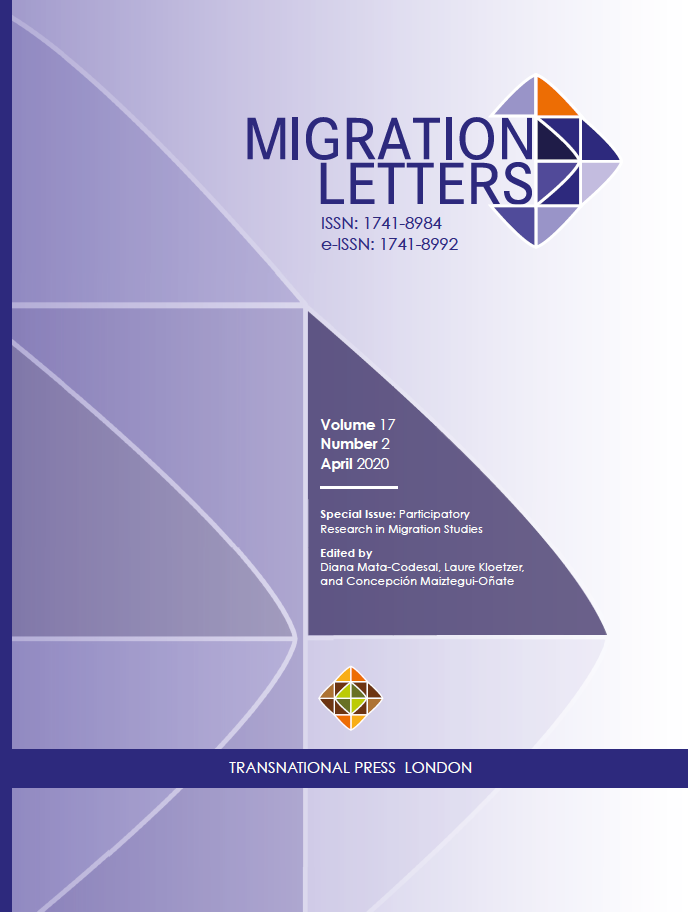Effects of the Geographical Distance on Economic Well-being: Evidence from Colombia with Emphasis on Displaced Population
Effects of the Geographical Distance on Economic Well-being: Evidence from Colombia with Emphasis on Displaced Population
Author(s): Juan C. Correa, Henry Laverde-RojasSubject(s): Welfare systems, Migration Studies, Socio-Economic Research, Peace and Conflict Studies
Published by: Transnational Press London
Keywords: geographical distance; economic well-being; internal migration; Colombia;
Summary/Abstract: Forced migration and displacement are two well-known results of internal armed conflicts of nations. A fundamental relationship associated with these humanitarian movements is the one entailing the link between the geographical distance travelled by migrants and their economic well-being. As such a link remains unstudied in previous works, its empirical scrutiny is timely for migration studies. In this paper, we take the Colombian conflict as a case study to analyze this relationship empirically. Using data from the Longitudinal Social Protection Survey (ELPS) - 2012, we estimated a regression model, in which we tested different welfare measures and blocks of control variables. Contrary to what we expected, the results show that the elasticity of distance is positive and that it does not determine welfare outcomes for the displaced population.
Journal: Migration Letters
- Issue Year: 17/2020
- Issue No: 2
- Page Range: 309-324
- Page Count: 16
- Language: English

